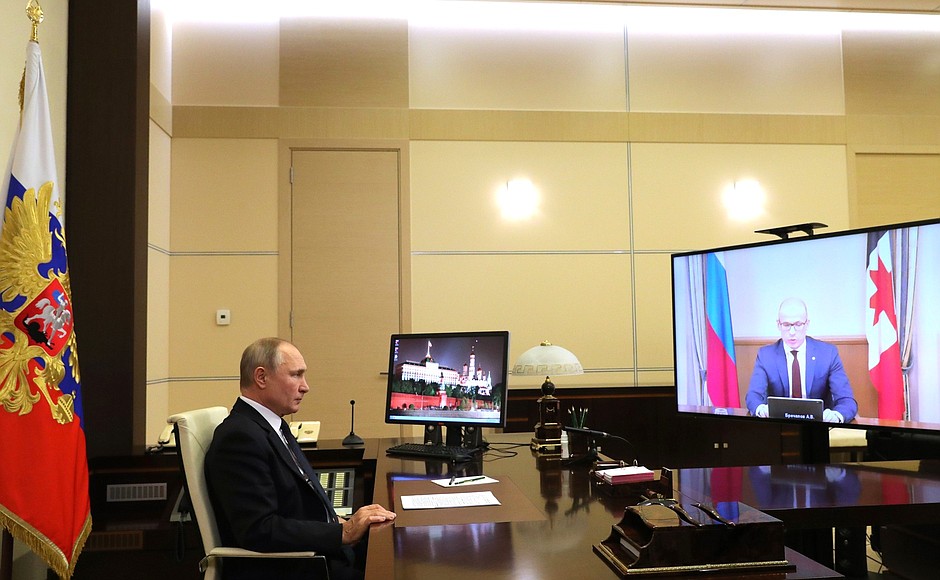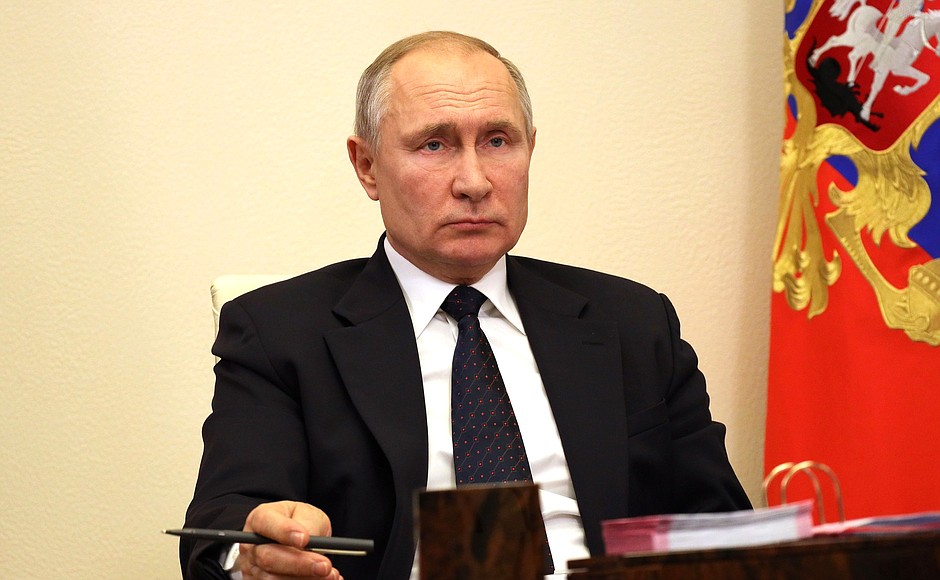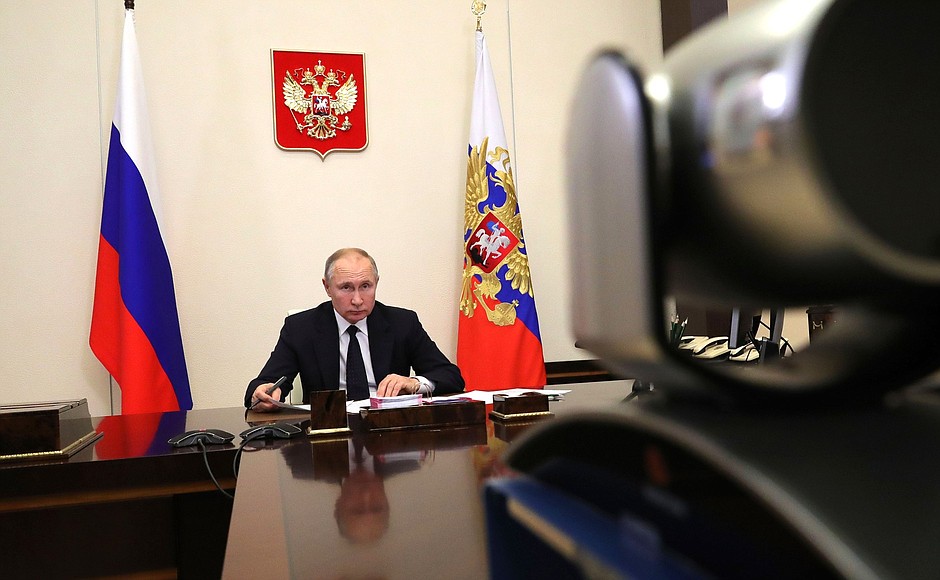First, Alexander Brechalov reported on the situation with the COVID-19 infection. He said additional hospital beds had been deployed due to the spread of the disease, and that outpatient clinics were providing patients with anti-COVID medications. He also discussed the vaccination programme and the assistance rendered to the Republic by the Russian Healthcare Ministry. The President asked him to maintain contact with other regions and to provide mutual assistance, if necessary.
Mr Brechalov recalled that the Udmurt Republic had marked its 100th anniversary in 2020 and noted that its most significant achievements were linked with local manufacturing plants. Out of the Republic’s six cities, four evolved as industrial centres. Most plants opened in the spring of 1941. Gunsmiths in Izhevsk and the whole of Udmurtia made a substantial contribution to the victory over Nazi Germany. Mr Brechalov thanked the President on behalf of the people for conferring the title of City of Labour Glory to Izhevsk whose 260th anniversary was marked in 2020.
Mr Brechalov noted that the Udmurt business community had effectively coped with the challenges of the pandemic and had received substantial support, in particular, 24,000 small businesses received support, and this made it possible to preserve over 80,000 jobs. According to Mr Brechalov, non-commodity and non-energy exports reached $402 million in ten months of 2020, up 7 percent over 2019. The United States, Germany, Switzerland, Austria, the CIS countries and China buy Udmurtia’s goods and agricultural products. For example, the large company KOMOS has started exporting milk and ice cream to China, and meat to Mongolia. There are plans to export eggs to Saudi Arabia. A micro business in the village of Vyatskoye with a population of 380 people has implemented its own project with the support of the Russian Agriculture Ministry, and 2.5 tonnes of comb honey have been delivered to Switzerland.
Major efforts were exerted to support entrepreneurs on digital platforms, and the e-commerce network supported 61 micro and small businesses. At the end of 2020, Udmurtia placed among the top three eBay exporters after Moscow and St Petersburg. The Republic has launched its own marketplace called udm.market representing over 136 small businesses free of charge.
The Republic has many defence enterprises that organise production of civilian goods and export them. Alexander Brechalov used Axion as an example: the very enterprise where the first AK-47 was made. Today, Axion also produces medical equipment and household appliances and exports those to 17 countries. In 2020, exports of medical equipment grew 40 percent compared with 2019, and exports of household appliances by almost 68 percent.
In general, the share of civilian or dual-use goods manufactured by companies of Udmurtia’s military-industrial complex at the end of 2019 was about 20 percent, and over the first nine months of 2020 it was already 25 percent.
Regarding the social sphere, Alexander Brechalov talked about the construction of kindergartens, schools, and paramedic centres as well as repairs and renovations of other social facilities, road and housing construction, and the reconstruction of the airport in Izhevsk.
Vladimir Putin noted that the overall situation in the Republic was stable and suggested talking about the region’s problems and proposals on solving the most acute ones.
Alexander Brechalov reported on the problem with the Republic’s debt, which grew due to the circumstances in 2020, although, he added, tax revenues and the share of taxes paid to the federal budget have been growing every year. The Republic does apply for Government financial support, but it is also working to change the situation, in particular, to develop the economy, to optimise spending of budget funds and make it more efficient, to carry out administrative reform. According to the head of the region, Udmurtia needs an individual development programme designed together with the Russian Government. He believes that in the short term, Udmurtia will be capable of strong growth, but it requires assistance in implementing investment projects.
The President noted that in general the head of the region and his team were managing their tasks well. Positive trends could be seen in all main areas. Efforts taken to hold down retail prices, which were growing slower than average in Russia, the level of dilapidated housing lower than the national average, and the growth of construction volumes in 2019 and 2020 are among the positive aspects.
At the same time, Vladimir Putin noted a slight increase in the unemployment rate and the fact that the number of roads not up to the standard was still high. He also noted that the effort to find ways to produce civilian goods at the Republic’s defence enterprises was still low, emphasising that these companies were not of regional importance or not regional property, therefore they needed support from the Government, ministries, agencies, and the holdings they belong to. The President asked the head of the region to maintain close contact with these enterprises and promised support, if necessary. At the same time it was important for them to avoid any lay-offs, because every effort should be taken to maintain employment in the region.
Vladimir Putin noted that in general the tasks facing the Republic were being addressed steadily and in a quality manner. The development pace achieved in some areas was very good. With regard to the Republic’s development plan, the President called it a very good idea and that it should be finalised by his Executive Office and the Government.


